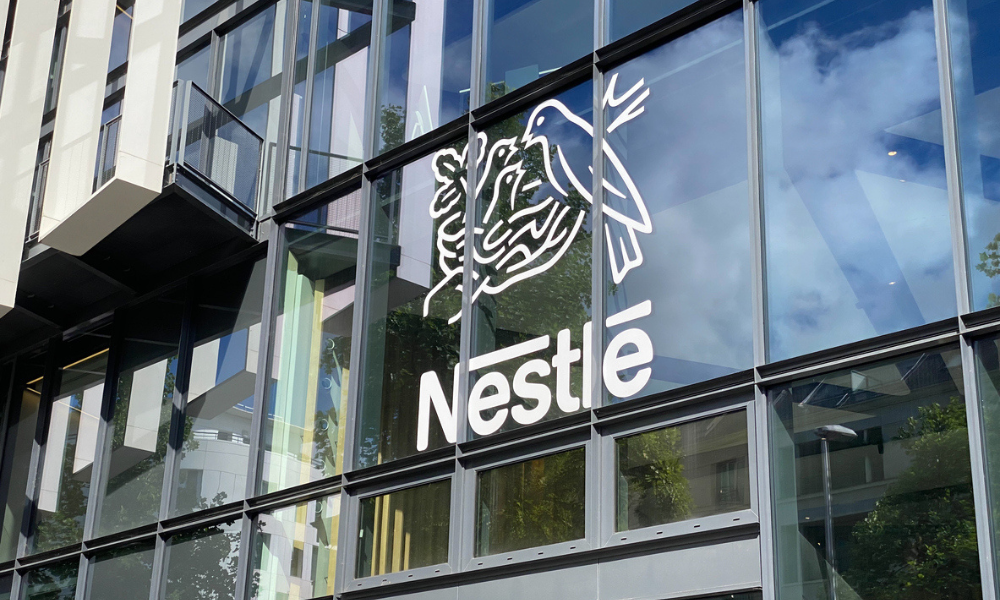The new food line caters to weight-loss drug users, focusing on high protein and fibre content

Nestle's new food brand targets people taking weight-loss drugs like Wegovy, highlighting that the meals are high in protein, fibre, and nutrients without naming the medications, according to a company executive in an interview with Reuters.
As reported by The Globe and Mail, Tom Moe, Nestle USA’s president of meals, said the company is avoiding the drug names on packaging due to regulatory concerns.
Instead, Nestle will promote its Vital Pursuit line of $5-and-under frozen meals on social media. Moe stated, “We won’t directly make the connection (to the drugs) on the food package.”
Nestle’s decision to avoid naming drugs like Novo Nordisk’s Wegovy and Ozempic reflects the uncertainty global food companies face as they invest in products aimed at people using appetite-suppressing medications.
These GLP-1 agonists threaten the profits of snack-makers and fast-food chains as users significantly reduce their food intake.
Nestle will launch its fajita melts and pizzas this autumn, competing against other companies making specific claims about their products for people on these medications.
For example, Biocare, a drink priced at $4.50 per serving, claims to “alleviate side effects” like nausea for users of semaglutides, the active ingredient in Wegovy and Ozempic.
Doctors advise people using these medications to continue eating, especially protein-rich foods, to maintain energy and prevent muscle loss despite the gastrointestinal side effects.
Herbalife markets shakes in a $185.10 bundle, claiming to meet nutritional needs for those on “the shot,” a colloquial term for these injectable drugs. Retailers like GNC also seek to profit by creating sections dedicated to GLP-1 users, selling protein powder and fibre.
Avoiding direct references to weight-loss drugs on Vital Pursuit packaging protects Nestle from regulatory scrutiny. Moe explained, “We’re not a medication, we’re a food product.
Referring to these drugs could imply that the food treats or prevents disease, a claim only approved by the US Food and Drug Administration, according to Lauren Handel, a food attorney.
Handel said, “It’s a tricky area where you’d want to be careful about what you say. The safest course of action is not to mention any drugs.”
This caution extends to advertising, where labeling items as “suitable for people on a diet” or “companions” to the medications might comply with FDA regulations. Some companies, like Herbalife, take more risks.
Herbalife’s Facebook page directly addresses GLP-1 users, saying, “Using a GLP-1 weight-loss drug? Support your nutritional needs by using Herbalife’s GLP-1 Companion Pack.”
Frank Lamberti, Herbalife’s chief commercial officer, explained they chose the term GLP-1 instead of brand names like Ozempic to avoid excluding users of other drugs or those who have stopped taking the medications but still monitor their weight.
Robard Corp, the maker of Biocare, markets its drink through influencers who use GLP-1s. Biocare influencer Ashley Dunham of Jacksonville, Florida, praised the product in a TikTok video, saying it has been an “absolute game changer” for maintaining her weight after losing 100 pounds (45.4 kilograms).
Companies like Coca-Cola and Danone promote their products as suitable for people taking these medications, emphasizing low sugar or high protein content. Coke’s Fairlife shakes, containing up to 42 grams of protein, are popular on social media among GLP-1 users.\
Fairlife does not have paid partners or influencers linking the shakes to GLP-1s or weight loss and does not provide free products or incentives to these consumers. However, the company acknowledges that users appreciate the shakes.
Healthy Choice meal maker Conagra Brands also avoids mentioning drug names on packaging for products aimed at people using these medications. Megan Bullock, Conagra’s director of strategic insights, noted that naming the drugs might deter non-users from purchasing the food.
Bob Nolan, Conagra’s vice president of demand science, said the company highlights protein or fibre content in existing products to signal suitability for GLP-1 users. Conagra currently does not plan to develop new brands for this market but sees potential to increase frozen meal sales to these consumers.
Kelli Frias, a marketing professor at American University, said consumers lack clear ideas about what to eat while on these medications. Food companies aim to create new associations, teaching consumers what foods are appropriate for their needs.



